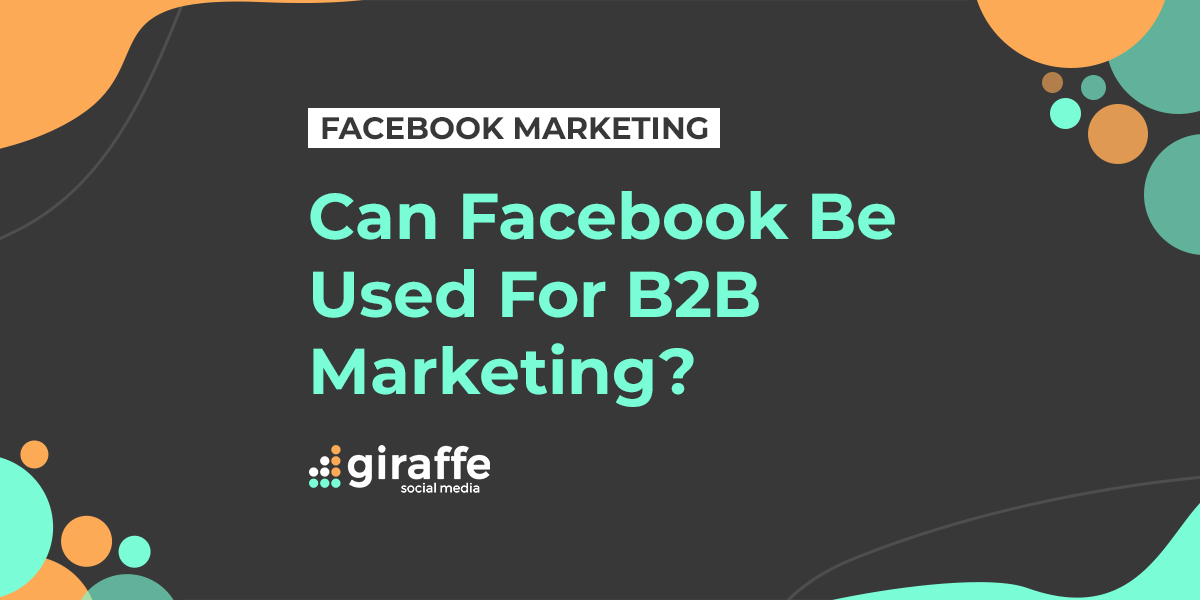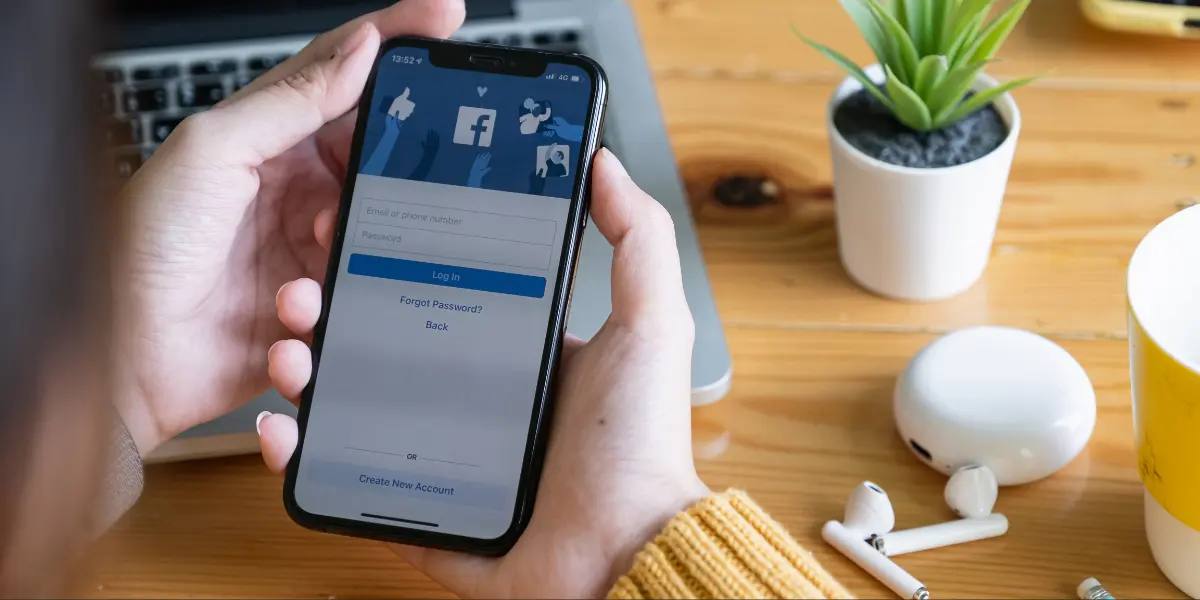What if we told you that B2B marketing is not confined to LinkedIn and Twitter? Facebook may be an overlooked big player in B2B marketing strategy. Here is how you can utilise Facebook tools for your advertising plans.
Facebook is the long-reigning king of social media, with 2.45 billion monthly users reported in Q3 2019. The versatility of owning a business page on Facebook is incredibly important; whether you want to reach as many users as possible, or zero in on users interested in your niche, Facebook can accommodate it all.
This versatility expanded when Facebook Business Manager launched in 2014, offering a one-stop-shop for advertising on Facebook. Using this dashboard, you can oversee multiple accounts and pages, and keep all of your business assets in one place. You can also add employees and other admins to manage alongside you, which is perfect for growing companies with several campaigns running at once.
Even better, now if you have an Instagram Business account this can also be synced with your Facebook Business Manager for even easier access to post insights and scheduling control.
Facebook Pixel
Facebook created its own analytics tool, “Facebook pixel”, a piece of code added to your website to provide extra insights into user behaviour on your site and the effectiveness of your Facebook advertising. This an almost-essential tool for advertisers on Facebook, particularly in the B2B market, as it allows you to drill down your analytics.
There are standard Facebook pixel ‘events’, such as users submitting a form or viewing a video, which have been identified by Facebook and can be logged, analysed, and optimised with ease. In addition, Facebook also gives you the ability to create custom pixels and events which are specifically tailored to your website and business. This will make your data more useful and give you a better picture of how your campaigns are doing.
Perhaps most importantly for the B2B market is the ability from pixels to make sure that your ads are being shown to the right people. Whether to your company, this means that you want to reach new potential customers, or target existing customers to build relationships and loyalty, Facebook advertising can help you achieve your goals.
B2B Marketing Goals
It is quick and easy to create, manage, and analyse campaigns using Facebook Business Manager. Similarly to Search Advertising campaigns, Facebook advertising campaigns can focus on different marketing goals. As a B2B company, these will typically look like all or a mixture of the following: brand awareness, traffic, lead generation, and conversions – starting from the top of the sales funnel, all the way down to closing the deal. This helps you to optimise campaigns to achieve the results you want, according to your marketing strategy and budget.
Audience Targeting
Your Target Audience is key in the creation and implementation of your B2B marketing strategy. Fortunately, Facebook has great audience insights and targeting options available to utilise for advertising campaigns.
LinkedIn may be where most companies gravitate towards for their B2B goals, but do not overlook the specific targeting options available on Facebook when it comes to Job Titles, Industries, and Interests. With these options, you can target users who, for example, actively work in a particular industry that your business targets, making your ad more relevant and reaching users who are more likely to convert down the line.
In addition to the core audience target options, you can create custom audiences to target with campaigns. Custom audiences are based on your own data, such as uploading an existing customer list or website traffic data. Remarketing using custom audiences allows you to advertise to existing leads and/or customers in order to drive future business and build customer relationships.
Once you have acquired data and are ready to grow your business more, consider using ‘Lookalike audiences’. These are lists of users who are similar to (or ‘look like’) an existing audience. This can be extremely useful in identifying new leads and prospects without overspending on a large reach campaign, as it narrows down the list automatically and based on customised data.
Taking Advantage Of Organic (Non-Paid) Features
Alongside paid advertising on Facebook, it is a good idea to utilise the organic features of the platform as well. You need to have an active Facebook business page in order to run advertisements, but it doesn’t stop there – business pages have become more comprehensive over the years and its features can be useful to promote your business across platforms. For example, if you host Webinars relevant to your industry, consider using Facebook Live or creating Events and inviting your followers to attend. This can help you gain credibility and increase awareness of your company, all for free!
Additionally, Facebook Messenger is a free tool that you can utilise to reach out to existing or potential leads, customers, and business partners – it also works the other way around as another tool for people to reach out to you. Bear in mind that your average response time will appear on your page; maintaining a fast response rate can increase the likelihood of receiving questions and inquiries through Facebook Messenger.
Keeping It Relevant
A key component of using Facebook for advertising is relevance. Your ad campaigns should be relevant to and optimised for your target audience, and likewise the landing pages on your website should be relevant to, or even created specifically for, those ad campaigns. But there is no one-size-fits-all when it comes to B2B marketing. On Facebook alone, there are endless combinations of marketing goals, audiences and demographic targeting, and ad creative which you can implement. It is most important to analyse your data, observe the trends, and optimise your strategy according to what works for your business. Don’t be afraid to experiment either, especially as there is A/B testing built into Facebook Business Manager.





